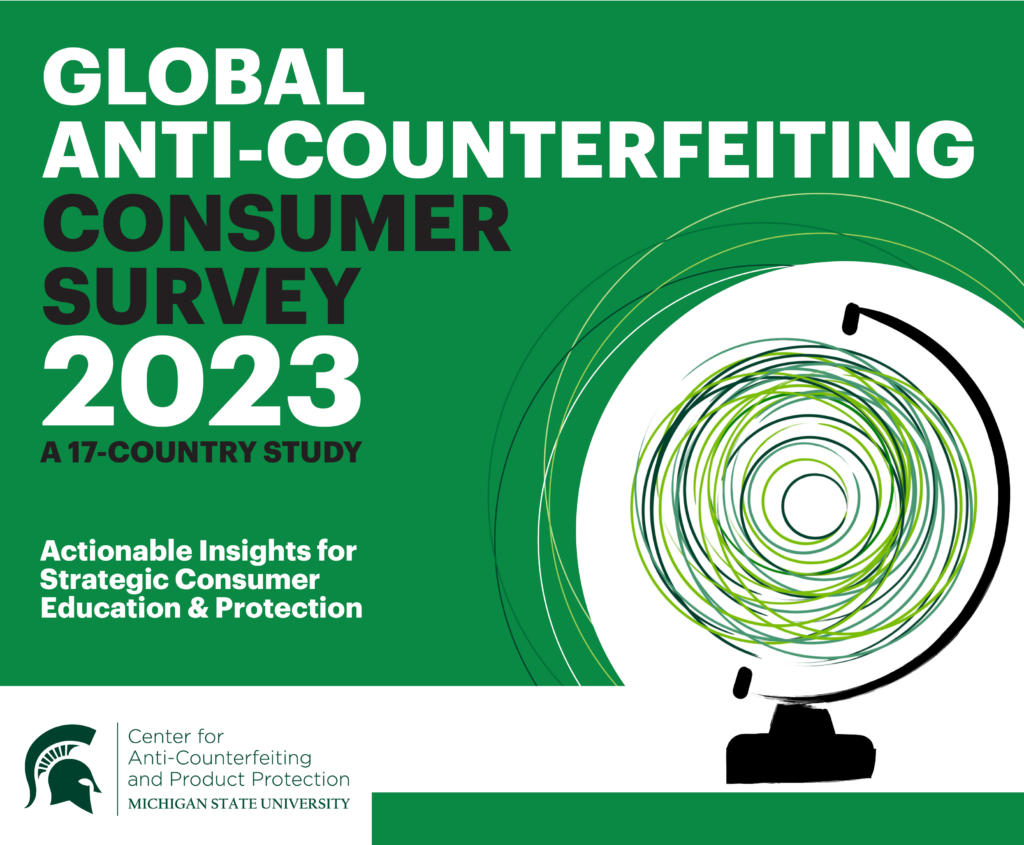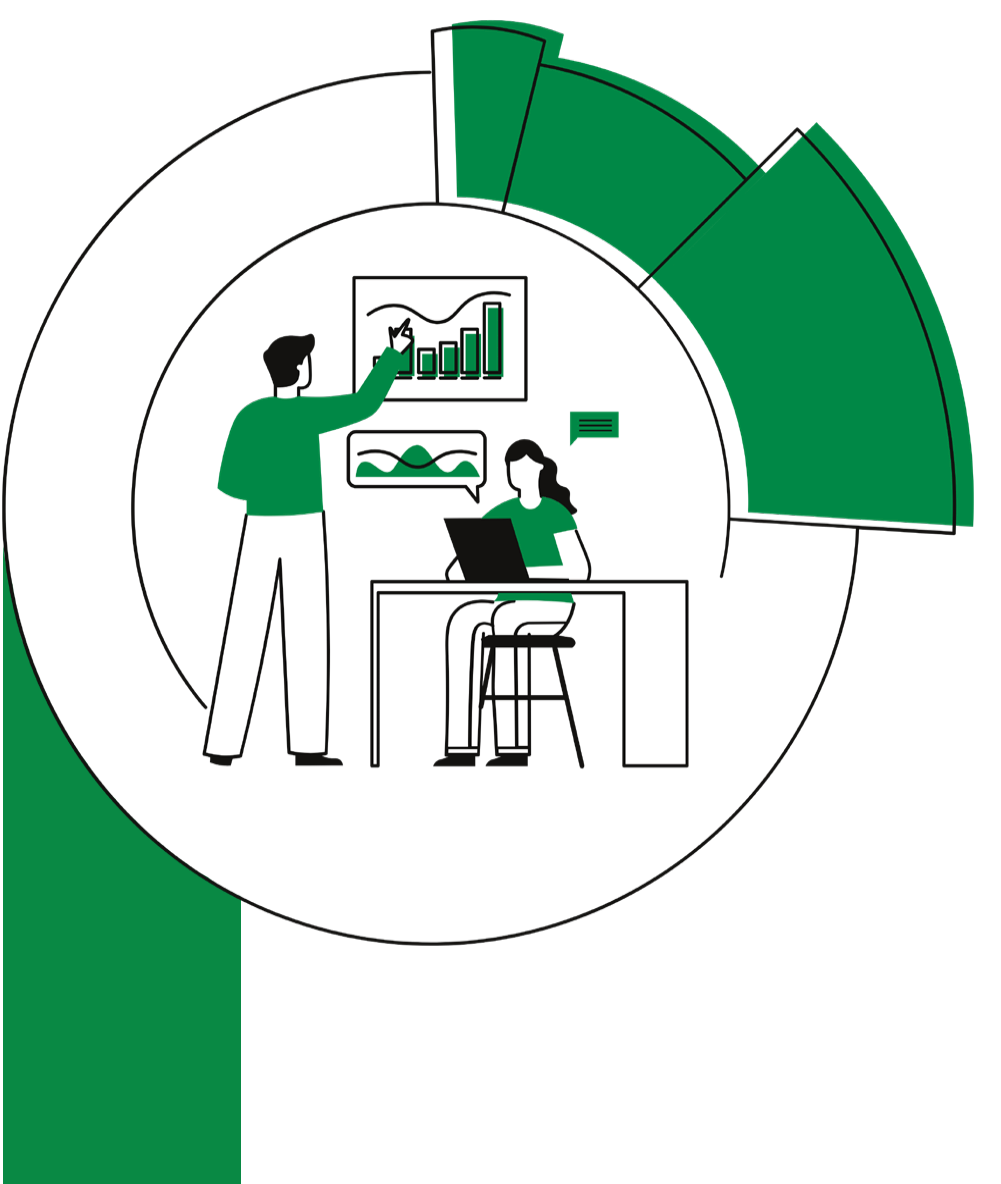Adapting Conjoint Analysis to Quantify Influential Features of Social Media Posts

GLOBAL
ANTI-COUNTERFEITING
CONSUMER
SURVEY
2023
A 17-COUNTRY STUDY
Saleem Alhabash, Anastasia Kononova, Patricia Huddleston, Heijin Lee, and Moldir Moldagaliyeva, 2023
Executive Summary
Trademark counterfeiting (hereinafter “counterfeiting”) is a prevalent global risk. A survey of consumers from 17 countries (N = 13,053), conducted in seven languages, examined the prevalence of counterfeit purchase behaviors and what predicts past purchase and future purchase intentions. Our approach was informed by three theoretical lenses to explain counterfeit purchase: motivations, theory of planned behavior, and protection motivation theory, to answer the following questions:
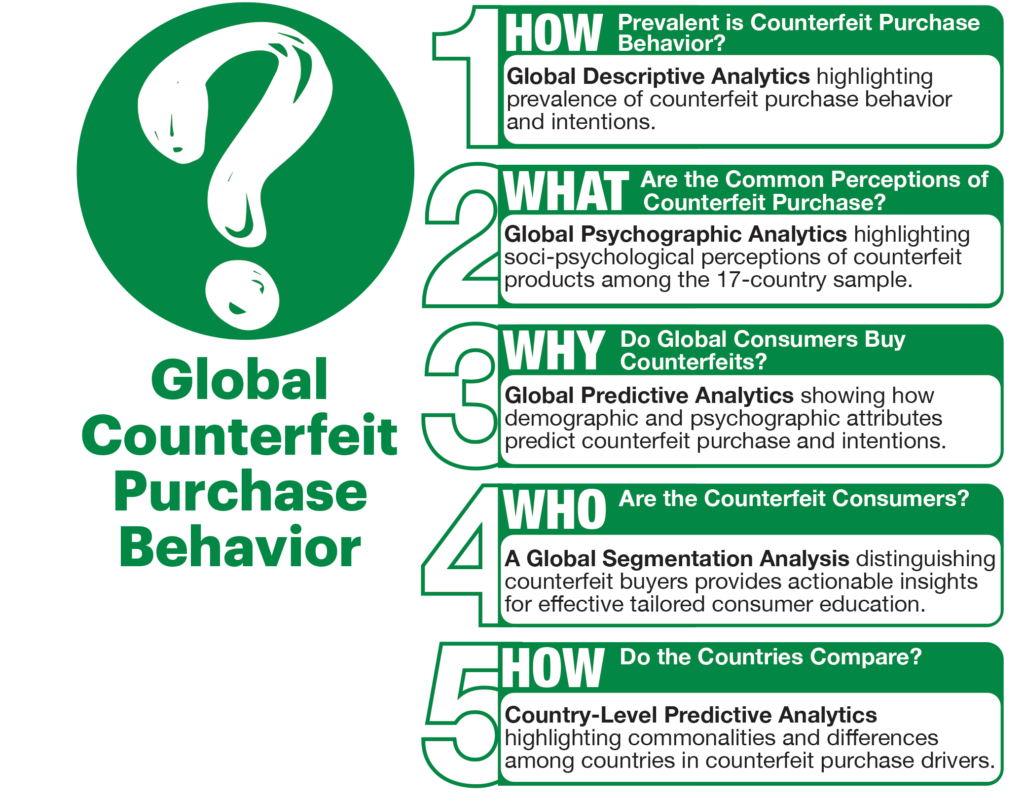
Our findings are framed within the context of global and country-specific actionable insights geared toward helping the brand protection community and related stakeholders better educate consumers about the dangers and risks of purchasing counterfeit products around the world.
Key Findings

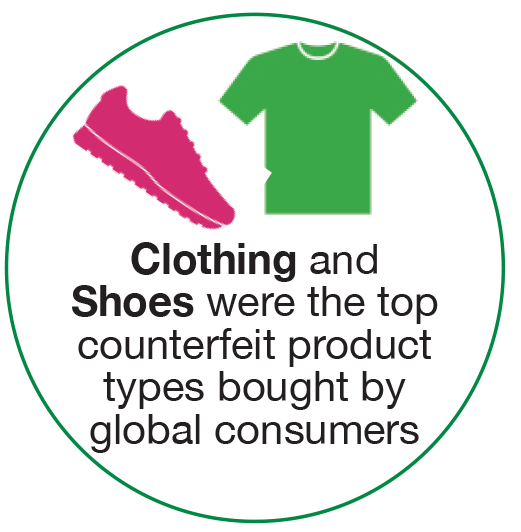
Clothes and shoes were the top-purchased counterfeit product types. Global consumers resorted mainly to social media and e-retail platforms to purchase counterfeits, and among those purchasing counterfeits through social media, 68% did so via Facebook.

When differentiating counterfeit buyers and non-buyers, buyers were more likely to be male, younger, highly religious, frequent online shoppers, and from lower income households.

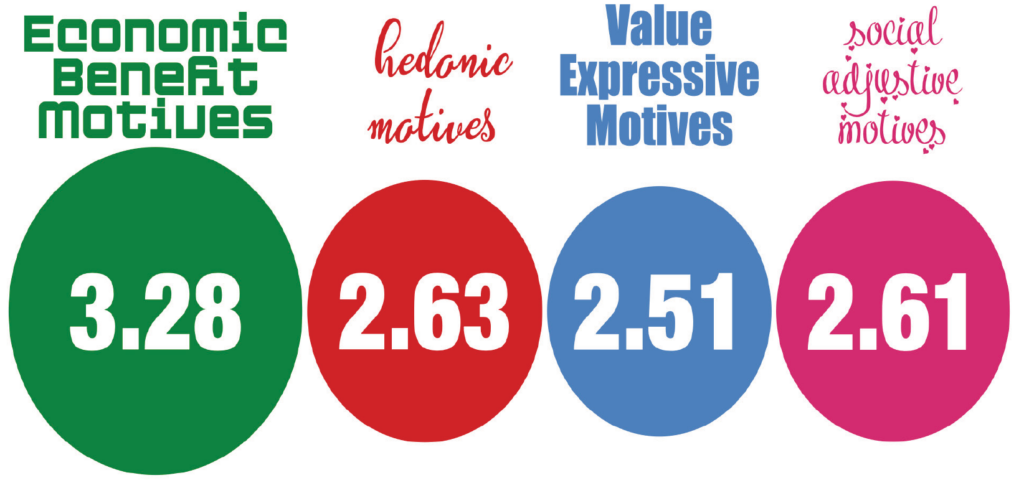
Despite consumers expressing they were mostly motivated by a deal or bargain (economic benefits motivation) to buy counterfeit products, enjoyment with counterfeit shopping and buying (hedonic motivation) positively predicted counterfeit purchase intentions and behaviors the strongest.
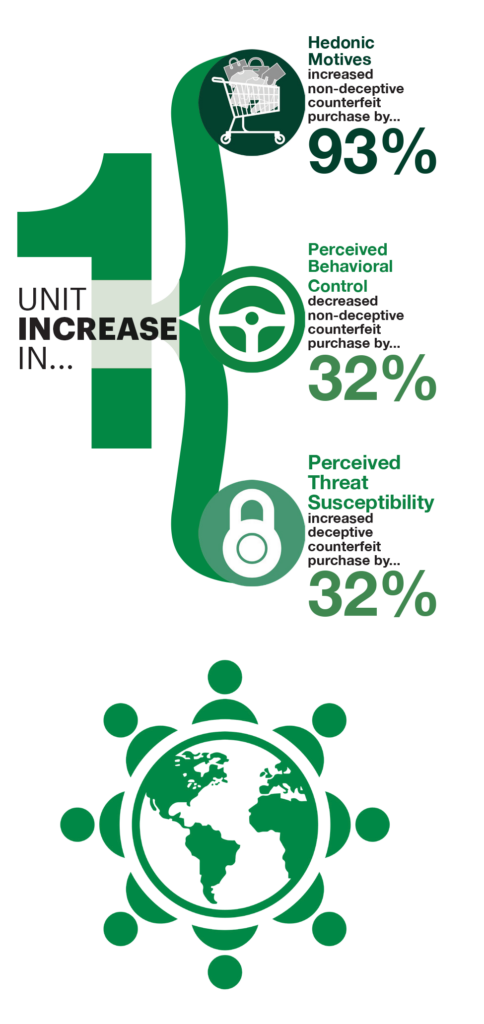
Attitudes and perceptions of what other people typically do positively contributed to counterfeit purchase intentions and behaviors. Consumers were more likely to have bought counterfeit goods (deceptively and non-deceptively) in the past and have intentions to do it in the future if:
- they had positive attitudes toward counterfeit purchasing, and
- they believed that their peers in the country, town, or the Internet (distal reference groups), as well as close friends and family (proximal reference groups) accepted this behavior and engaged in it.
If a consumer has high awareness of the risks of buying counterfeits online (threat severity) and believes that they can recognize counterfeit on e-retail platforms and avoid buying it (e-retail response efficacy) they are more likely to refrain from buying counterfeits compared to their counterparts with lower threat severity and e-retail response efficacy perceptions. On the other hand, greater feelings of vulnerability to the risks of counterfeit buying (threat susceptibility) and higher levels of self-efficacy, or confidence in one’s ability to protect themselves against counterfeit risks increased the likelihood of counterfeit purchase (both non-deceptive and deceptive).

Per our global segmentation analysis, on a global level, non-buyers, occasional buyers, and frequent buyers of counterfeit products share common demographic characteristics, yet they are vastly different in terms of what predicts their counterfeit purchase intentions, as well as non-deceptive and deceptive purchase.
Descriptive and predictive analytics showed significant differences in counterfeit purchase behavior and what predicts it. These insights are helpful for a more tailored approach to consumer education and interventions that aim at changing consumers’ counterfeit attitudes and purchase behaviors

Our Research Team

This research was conducted independently by the Michigan State University Center for Anti-Counterfeiting and Product Protection (A-CAPP) using research gift funding from Underwriters Laboratories Standards & Engagement.
With great appreciation, we acknowledge Kari Kammel, Director, A-CAPP; Carrie Feeheley, Assistant Director of Education & Outreach, A-CAPP; and Sara Heeg, Business Manager, A-CAPP, for their contributions to facilitating funding and managing this project. We also extend special thanks to Dr. Jay P. Kennedy and Dr. Jeff Rojek, former A-CAPP Center staff, for contributing to earlier versions of the survey instrument and facilitating the acquisition of the research gift.
To cite this report: Alhabash, S., Kononova, A., Huddleston, P. Moldagaliyeva, M., & Lee, H. (2023). Global Anti-Counterfeiting Consumer Survey 2023: A 17 Country Study. East Lansing, MI: Center for Anti-Counterfeiting and Product Protection, Michigan State University. https://a-capp.msu.edu/article/global-anti-counterfeiting-consumer-survey-2023/
Copyright © 2023 Board of Trustees at Michigan State University. All rights reserved.
